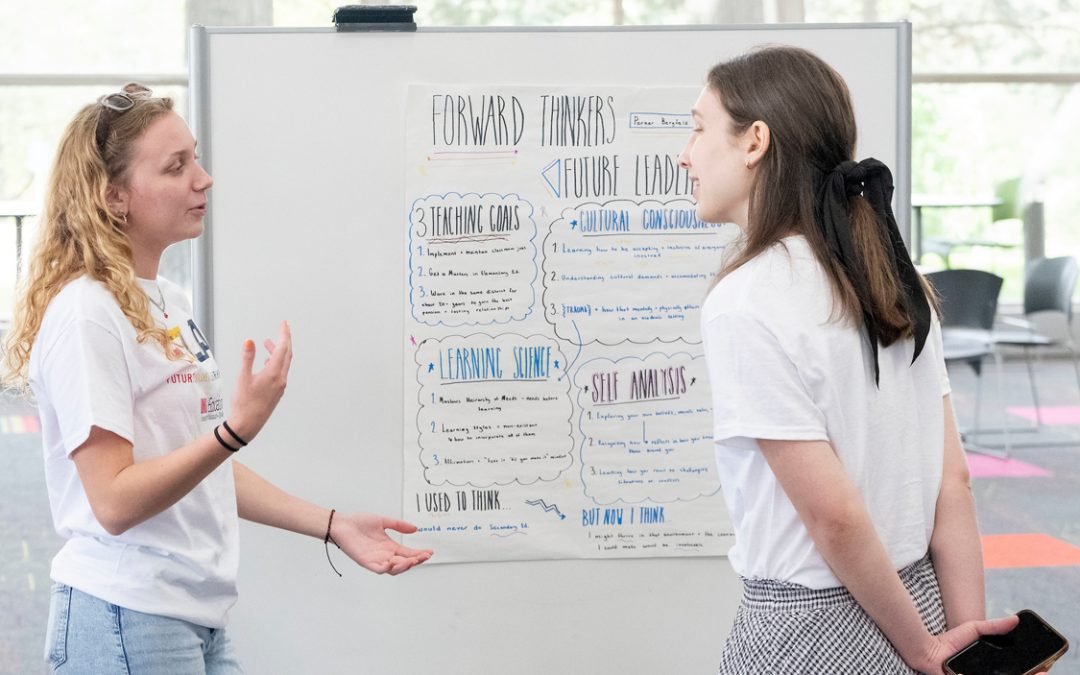
UMSL’s Community Psychological Service will begin holding a pair of weekly “Coping with COVID” group therapy sessions to provide community members an outlet to talk about issues impacting them during the pandemic and tools to deal with their anxiety. (Photo by August Jennewein)
People today are living in a state of heightened stress, brought on by the interruption of daily routines, physical isolation and fears of illness and economic loss that have accompanied the COVID-19 pandemic.
The Community Psychological Service at the University of Missouri–St. Louis is working to help people manage their anxieties.
This week, it will begin “Coping with COVID” therapy groups to provide community members an outlet to talk about the issues impacting them and get tools to help confront their restlessness and apprehension.
“This can be beneficial for anyone who’s having any uptick in mental health issues or distress,” said John Nanney, the director of the Community Psychological Service and a clinical assistant professor in UMSL’s Department of Psychological Sciences. “Because of the group and short-term format, I think it’s particularly good for people who are experiencing significant anxiety, depression or other symptoms for the first time.”
Nanney is coordinating the sessions with help from four doctoral students in UMSL’s clinical psychology program.
The sessions will be held weekly on either Tuesday mornings or Thursday evenings via a HIPAA-compliant Zoom conferencing platform and with a cost of $50 for five meetings. UMSL Students are offered a reduced rate of $20 for the five-session group. New groups will begin periodically as need requires.
Nanney expects the groups to be limited to eight to 12 members, giving each sufficient opportunity to talk about particular difficulties they’re facing as well as share solutions that might benefits others in the group.
Participants will also receive specific ideas and skills for combating stress. Among the things therapy session leaders will emphasize is the importance of staying active and engaged with a regular schedule, including devoting time to self-care.
They also will teach mindfulness meditation techniques to help people stay focused and centered in the present, so they don’t risk being overwhelmed by regrets over the past or anxiety for the future.
“It’s helpful both for generating a sense of calm, but it also helps you get really on the immediate present where we’re most effective,” Nanney said.
Those leading the sessions will give advice for ways to deal with challenging or unhelpful thoughts – e.g. catastrophic thinking, overestimating the probability of bad stuff happening and self blame – that might lead people to have more significant problems with anxiety or depression.
They also talk about the importance of people practicing compassion, especially with themselves.
“We’re all going to do some things that we wish we wouldn’t have to cope with these stressors,” Nanney said. “You’re going to eat too much, you’re going to drink too much, you’re going to not have saved as much money as you would have liked, you’re not going to have been perfect at work and you’re not going to be a perfect parent. You’re not going to do everything exactly the way that you should have, and that’s okay.
“The important thing is to be compassionate toward yourself when these things happen and avoid getting stuck in this kind of self-criticism trap.”
Group leaders will also track the symptoms of group members throughout and at the end of the five-week sessions, and if people continue to have difficulties, they will provide referrals for more individualized care.
Nanney believes it is important for people to try to finding meaning in the face of tragedy, trauma and loss.
“Try to find some sense of community and connectedness and some hope and optimism for what we’re going to be able to do in the midst of the pandemic or in the aftermath,” Nanney said, “once we think about what we want to change about ourselves and our society given all that we have faced.”
For more information on the group therapy sessions or other services, contact the Community Psychological Service at 314-516-5771.














